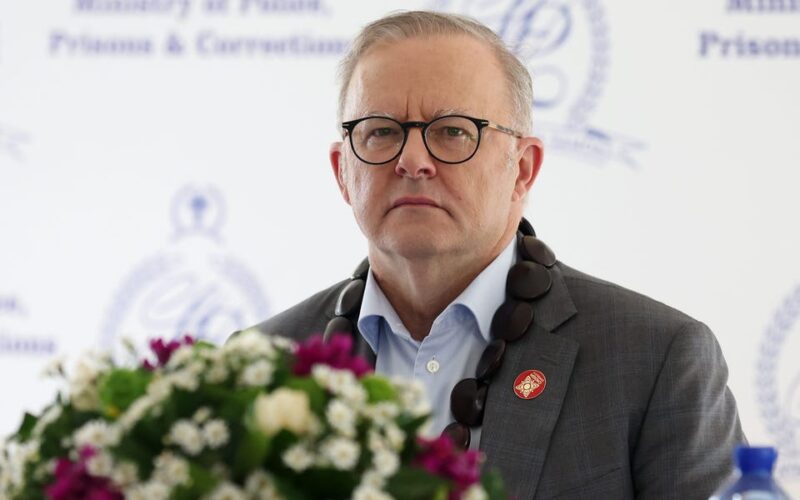- Australia plans to ban social media for users under 16, Prime Minister Anthony Albanese said.
- The ban comes amid a global effort to curb kids’ use of social media.
- Some say Australia’s ban is too broad, potentially limiting access to mental health services.
With young people using social media more than ever, and those social media companies perfecting the algorithms that keep them engaged, concerns about social media addiction are taking root all over the world. Now, Australia wants to ban social media for everyone under 16.
Australian Prime Minister Anthony Albanese announced the plan on Thursday. Australia’s social media ban will be introduced into Parliament during its final session this year, which begins on November 18. If passed, social media companies will have 12 months to figure out how to keep minors off their apps before the law is enforced, he said.
“This one’s for the moms and dads,” Albanese said in a press conference. “Social media is doing harm to our kids, and I’m calling time on it.”
Albanese told reporters that the proposed law would “put the onus” on social media companies to show that they are taking reasonable steps to keep children off of their apps, and not on parents.
“There will be no penalties for users,” he said.
Australia’s announcement comes on the heels of a multistate lawsuit in the United States that seeks to hold TikTok accountable for deploying “addictive” strategies aimed at kids and teenagers.
In October, attorneys general from 14 different states filed lawsuits against TikTok. They said the app is addictive and profits from damaging the mental health of children.
Internal TikTok documents from the lawsuit filed in Kentucky showed that TikTok employees determined that young users can become addicted to the app after viewing 260 videos. Given that most TikTok videos are about 8 seconds, Kentucky’s authorities calculated that a child could be addicted after just 35 minutes of using the app, the document says.
In the UK, meanwhile, lawmakers introduced a bill in October that would require social media companies to exclude children under 16 from algorithms that harvest their data. The law is meant to make it more difficult for companies to push addictive content to children, according to The Guardian.
In Australia, Albanese said that social media has seeped into every part of life, which led him to believe that a ban for underage users was “absolutely the right thing to do.”
Around 97% of teens use social media across various platforms in Australia, according to Reuters.
“This would be the number one discussion outside the schoolgate, on the sideline of tennis, cricket, football, netball, swimming — as parents gather, it’s something of enormous concern,” Albanese said.
Albanese called the legislation “world-leading,” but some experts oppose the ban, calling it too broad. More than 140 experts from Australia and other countries signed an open letter opposing the law, saying that the ban doesn’t do enough to address children who need access to critical services through social media, among other concerns.
Jackie Hallan, director at ReachOut, a youth mental health service, told the Associated Press that she also opposed the ban. According to Hallan, 73% of young people in Australia needing mental health services access it through social media.
“We’re uncomfortable with the ban,” Hallan told the outlet. “We think young people are likely to circumvent a ban and our concern is that it really drives the behavior underground and then if things go wrong, young people are less likely to get support from parents and carers because they’re worried about getting in trouble.”
Meta’s head of safety, Antigone Davis, told The Associated Press that the company would respect any age limitations that the Australian government wants to introduce.
“However, what’s missing is a deeper discussion on how we implement protections, otherwise we risk making ourselves feel better, like we have taken action, but teens and parents will not find themselves in a better place,” Davis said in a statement.
Davis added that stronger parental control tools in app stores and operating systems would be a “simple and effective solution” to keep children from downloading unwanted apps.
Source link
lol

